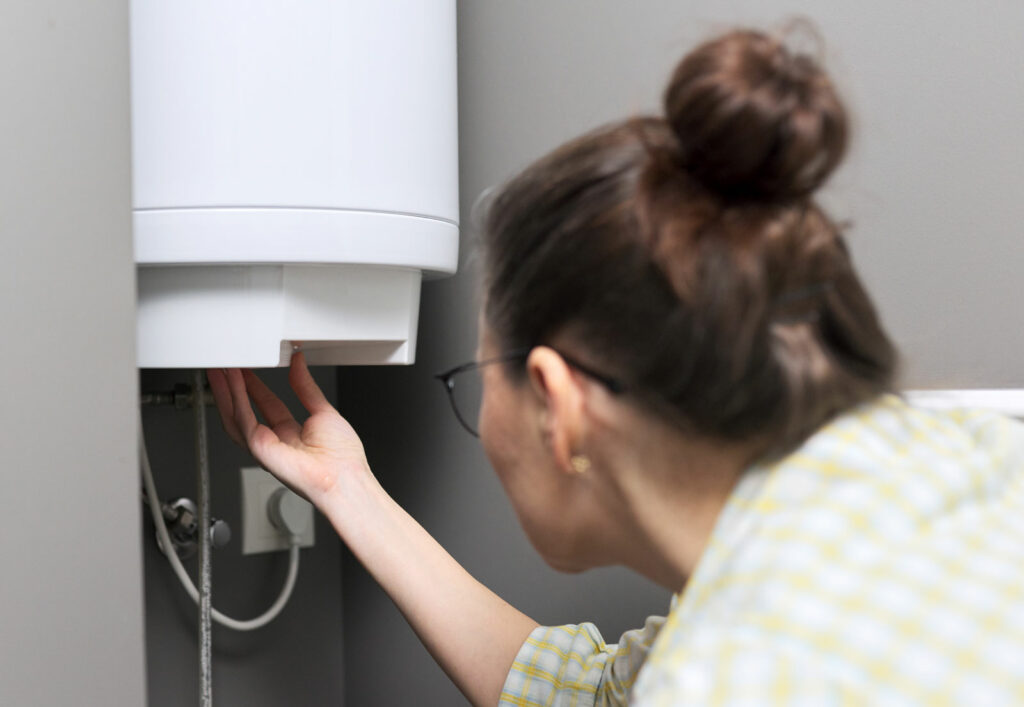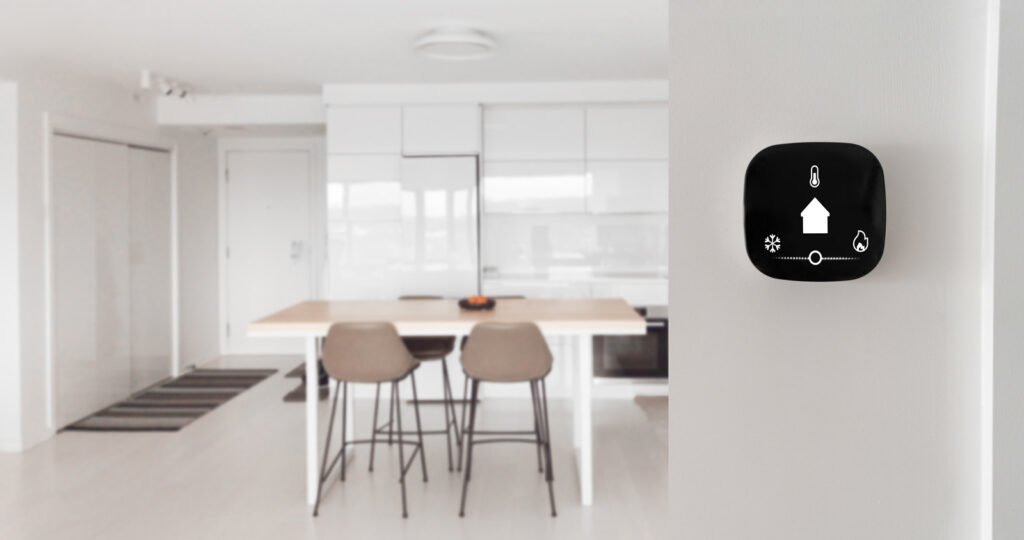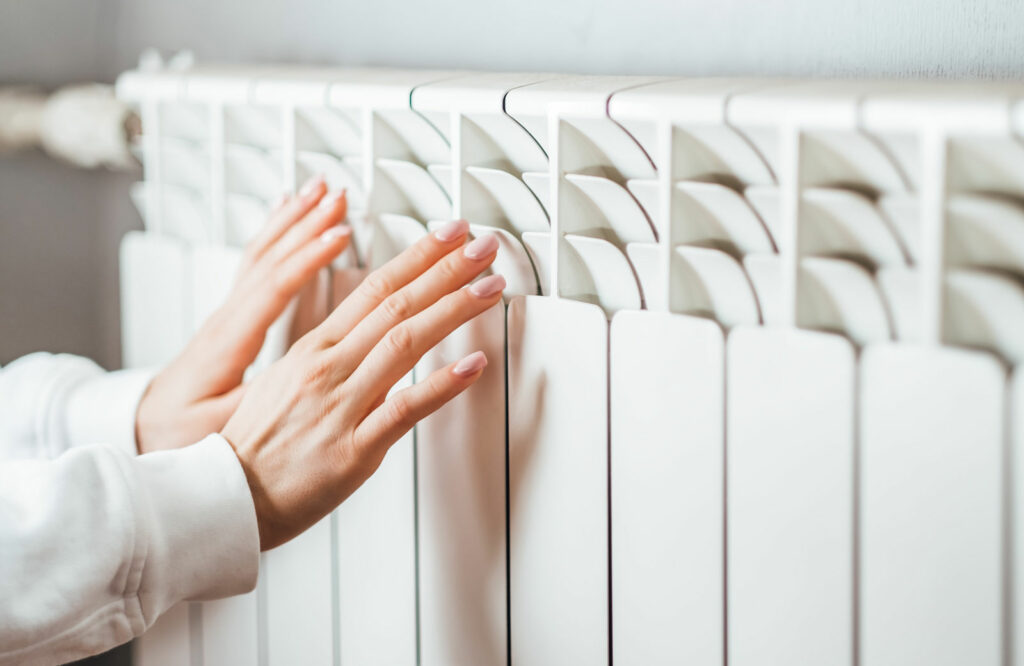Home heating can be one of the most significant costs homeowners face, so anything that can be done to reduce them will eventually have a fair impact on the overall bill.
It sounds obvious, but switching your energy supplier might be the first step towards reducing home heating costs. There are plenty of useful comparison sites you can use online to assess whether you are paying too much for the amount of energy you are using. More often than not, you’ll find there are cheaper options available – and it doesn’t take too long to make the switch.
Having a smart metre installed in your home is a great way to keep track of the energy you’re using – and can be especially useful during the winter months when you are using more heating. Smart meters give you visibility of what your bill looks like each month and where you could be making savings. Most models will allow you to see energy use per day, month and even year. You will likely be able to get a smart meter installed for free.
If you don’t have effective home insulation or you are noticing strong draughts coming through doors and windows, the likelihood is that you are using more energy than you should require to heat your home. Proper insulation will allow your home to stay warmer for longer, meaning you can reduce home heating costs by keeping your boiler running for less time. Insulating both your loft and cavity walls may seem like a large upfront cost, but if you can save on home heating costs year after year, it’s most definitely worth it. Alternatively, you can buy draught excluders for your doors and windows (and even your fireplace) and assess whether this makes any significant difference before you invest in proper insulation.
This goes without saying, but a more efficient boiler can work wonders when it comes to reducing home heating costs. If your boiler is old or has been needing regular new parts or repairs, it’s definitely time to look into getting a new one, and there are hundreds of energy-efficient models on the market. Get a quick quote now with Bbright to find the most suitable one for your home.

Most homes will have radiators in almost every room, but the likelihood is that when you turn on your heating, you don’t want to heat some of the rooms that are used less frequently, like small bathrooms or spare bedrooms. Monitor your radiators when you first switch on your heating, and ensure that those you don’t need are not switched on full – or even on at all. Heating fewer rooms will certainly help to reduce overall home heating costs.
Here’s a bonus tip from our energy experts: invest in more efficient appliances! Of course, it’s not the money-saving way to suddenly buy brand new appliances, but if you’re already thinking about replacing something in your home, it’s in your best interest to look for the most energy efficient model on the market. It may not seem like much, but making sure you invest in energy efficient appliances such as dishwashers and washing machines can have a huge impact on your overall energy and heating bill.
Take these tips on board and hopefully you will see a noticeable reduction in your home heating costs this year. Being aware of your energy usage doesn’t have to mean sacrificing a warm home or hot shower – it is simply about making small steps to ensure greater efficiency in the long run.
There are countless things you could try in order to decrease your energy usage, but our research has shown that some have far more impact than others. Here, we reveal the most effective changes you can make in your home.
If your home is not properly insulated, the likelihood is that the energy you use to power your heating system is being wasted. Homes with ample insulation can easily maintain higher temperatures for longer, and therefore need significantly less energy to heat up. If you haven’t yet invested in things like loft insulation and double glazing, there’s no question that this is worth doing in order to become more energy efficient and save on bills.
If you don’t yet have the budget for large insulation projects, you can use draught excluders in the meantime to make the most of your boiler usage.
Now more than ever, there are numerous energy saving appliances available on the market. Investing in them little by little can have a huge impact on your future energy bills. Frequently used appliances that require large bursts of energy such as washing machines and dishwashers are a great place to start, followed by fridges, ovens and other electricals.
Having smarter, greener appliances is certainly one of the more useful energy efficient home ideas – while it may seem costly at first, there’s no question that this solution will last several years.
Particularly if you’re due to upgrade your boiler, having a smart meter installed at the same time is definitely recommended. A smart meter allows you to keep track of all the energy you are using throughout your home, as well as the total cost each month. Having this overall view will prompt you to reduce your consumption and may eventually lead to your household developing greener and more sustainable energy use habits, such as switching off lights and appliances when not in use.

People all over the world are moving towards LED lights to ensure a more energy efficient home. Normal halogen bulbs are far less efficient, and newer LED lights are not only more affordable, but longer lasting (and more stylish!). Changing up your lighting is a relatively simple energy efficient home idea, but one that can certainly make a difference to the planet and your wallet.
You might not consider the temperature of the water that your appliances use, but it does in fact have a bearing on your energy usage. Washing machines and dishwashers require hot water during normal cycle settings, but there will usually be an option to wash at a cooler temperature to conserve energy. Consider this the next time you use one of these appliances – depending on what you are washing, you can probably afford to use a cooler setting. Some appliances also have an ‘eco’ mode, which means the cycle will run longer, but conserve energy in the process.
You should also make sure not to leave water running for too long, and try to use less in general. For example, choose quick showers over baths, use a washing up bowl rather than having a constant stream of water to clean dishes, and turn off taps while brushing your teeth.
Our energy efficient home ideas list would not be complete without recommending boiler upgrade! At Bbright, we can recommend specific boilers to you depending on your home and current energy usage. Changing your boiler to a newer, more efficient model will likely have the most significant impact on your energy usage and bills, especially if you have an older unit that has already required repairs. Get in touch with us for a personliased recommendation.
Are you ready to cap your energy usage and reduce your bills? We hope our energy efficient home ideas have inspired you to make some changes.
Boilers should run smoothly and efficiently throughout their lifetime, but there are a number of factors that can have an impact on their performance, and therefore an impact on how much you’re spending on your gas and energy bills. Here are the top signs you need a new boiler as listed by our experts:
If you’re finding yourself calling engineers more than a couple of times a year to come out and fix your boiler, there’s no question that it’s on its way out. Your boiler should be able to run without interference, and you’ll likely be spending more on repairs and new parts than you would on a completely new boiler. You may even find that with particularly old boilers that some parts have been discontinued – which is a sign in itself!
Unusual sounds or smells coming from your boiler can definitely be a sign you need a new one. Boilers tend to make slight noises when running or first turned on, but excessive whistling or rattling may mean that something isn’t right. Similarly, strange smells could mean there is debris trapped in the pipes or some kind of leak or breakage within the main unit. If you notice either of these things, it’s best to get a professional to take a look at your boiler as soon as possible, as it may lead to more serious issues down the line.
When heating systems are old, they tend to dip in efficiency, and this can lead to a sudden and excessive rise in your energy bills. Make sure you are keeping track of how much you are paying for your gas and electricity each month, and be wary that your old boiler in need of a replacement may be causing you to pay more. There are hundreds of energy-efficient boilers on the market, and investing in one sooner rather than later could save you hundreds of pounds in bills.
If you’re having problems with your radiators – e.g. they are taking too long to heat up, or some are not heating up at all – this can also be a sign of an old and inefficient boiler. Before you come to this assumption, be sure that you have checked that all your radiators are switched on and are at a high enough temperature to determine whether they are heating quickly enough. If your radiators are still being slow or are not working, this could be a sign that there is a blockage or fault somewhere in the main heating system. For this, you will definitely need a professional to assist in repair or replacement.

A loss of pressure in your boiler can mean a number of things: there may be a leakage in the system, air escaping through a valve or a more serious issue with the unit. One thing it definitely means however, is that you need a new boiler. Sometimes pressure issues can be remedied by using a leak sealer fitted to the heating system, but you will need professional guidance for this, and the chances are high the pressure will drop again over time.
Deciding when you get a new boiler can be difficult – there never seems to be a good time. We would certainly suggest sorting out the issue sooner rather than later to ensure your home has efficient heating for as long as possible, and also to keep your bills down. It’s also worth keeping in mind that you will use your boiler far less during the summer months, and so getting it replaced during these times will be easier and cause less disturbance.
While new boilers can seem like a large investment, it is an investment into the future, and there’s no doubt it will provide savings for you month on month due to far greater efficiency. Plus, without having to fork out for repairs, you can keep extra money in the bank for more exciting purchases!